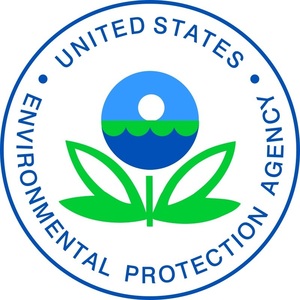EPA streamlines process to bring biofuels, chemicals to market

January 24, 2022
BY Erin Krueger
The U.S. EPA on Jan. 21 announced the launch of a new initiative under the Toxic Substances Control Act that aims to streamline the review of new biobased fuels and chemicals that could be used to displace higher greenhouse gas (GHG) emitting fossil-based transportation fuels.
According to the agency, the Office of Chemical Safety and Pollution Prevention’s New Chemicals Division “has implemented a robust, consistent, and efficient process to access the risk and apply mitigation measures, as appropriate, for substitutes to petroleum-based fuels and fuel additives that use biobased or waste-derived sources to produce biofuels.” The EPA said the effort supports the goals of both the Renewable Fuel Standard and the agency’s 2021 Climate Adaptation Action Plan.
“Tackling our nation’s climate crisis is a comprehensive and collaborative effort across all of EPA,” said Assistant Administrator for the Office of Chemical Safety and Pollution Prevention Michal Freedhoff. “Using sound science to streamline the review of more environmentally friendly chemical substitutes will help advance the Agency’s climate goals and protect human health and the environment.”
Advertisement
The EPA said it has received more than 30 biofuel premanufacture notices (PMNs). Collectively, those notices describe plans for the production of nearly 800 MMgy of advanced biofuels.
NCD has formed a dedicated team to collaborate on the review of the PMNs for biobased or waste-derived feedstocks used to make transportation fuel substitutes with the goal to use the best available science while creating a consistent and efficient review process. According to the EPA, NCD has developed a standardized process to review biofuel PMNs. Under that process, the same dedicated team will conduct reviews for all biofuel PMNs. NDC will also generate one report for biofuel PMNs that combines the six different risk assessments typically conducted for PMNs. For risk management actions, NDC will apply appropriate mitigation measures to address any potential for unreasonable risk identified in an efficient and consistent manner with TSCA consent orders and significant new use rules (SNURs).
OCSPP will hold a series of training webinars for interested stakeholders in the biofuel sector. A kick-ff meeting, scheduled for Feb. 9, will provide an overview of the initiative and answer stakeholder questions. A session on Feb. 23 will focus on TSCA requirements and the PMN process, while a March 9 webinar will focus on TSCA inventory, nomenclature and Bona Fide process, a March 23 event will focus on new chemical risk assessments and applications of the tools and models, and an April 6 webinar will focus on new chemicals risk management actions, including TSCA section 5 orders and significant new use rules (SNURs). The EPA said additional training sessions may be added based on stakeholder interest and feedback.
The Renewable Fuels Association has announced plans to engage with the new initiative. “RFA welcomes this new effort by EPA, which clearly shows the great potential of low-carbon ethanol to serve as a key building block for other renewable chemicals and sustainable products in the future,” said Geoff Cooper, president and CEO of the RFA. “We’re looking forward to participating in the EPA learning sessions and our Environmental, Health, and Safety (EH&S) Committee will be highly engaged.”
Advertisement
Clean Fuels Alliance America, formerly known as the National Biodiesel Board, will also engage with the EPA regarding the new initiative. “Our regulatory staff will be participating in EPA’s we information sessions following the announcement,” said Paul Winters, director of public affairs and federal communications at CFAA. “We look forward to working with EPA to speed up approvals of new clean fuels and grow the RFS market.”
Additional information is available on the EPA website.
Related Stories
Bangkok Airways Public Company Limited has officially announced the adoption of sustainable aviation fuel (SAF) on its commercial flights, reinforcing Thailand’s green aviation industry. The initiative took effect starting July 1, 2025.
Avalon Energy Group LLC and Sulzer Chemtech have signed a strategic alliance and partnership agreement to scale up the production of SAF. Under the agreement, Avalon has selected BioFlux technology for its portfolio of SAF projects.
The USDA has announced it will delay opening the first quarterly grant application window for FY 2026 REAP funding. The agency cited both an application backlog and the need to disincentivize solar projects as reasons for the delay.
Neste and DHL Express have strengthened their collaboration with the supply of 7,400 tons (9.5 million liters) of neat, i.e. unblended, Neste MY Sustainable Aviation Fuel to DHL Express at Singapore Changi Airport starting July 2025.
CoBank’s latest quarterly research report, released July 10, highlights current uncertainty around the implementation of three biofuel policies, RFS RVOs, small refinery exemptions (SREs) and the 45Z clean fuels production tax credit.
Upcoming Events










